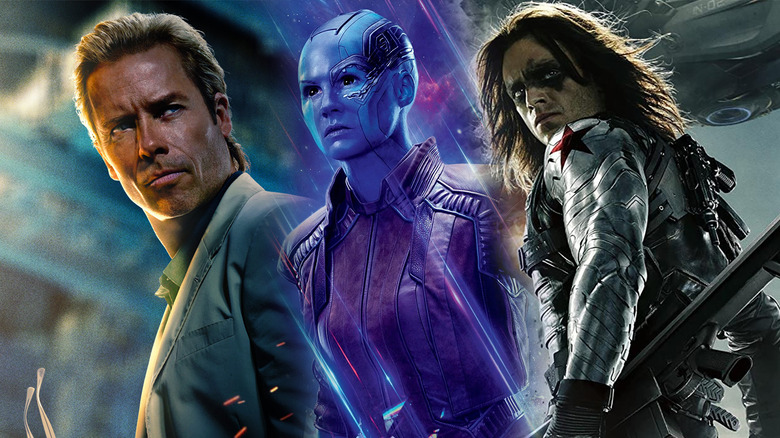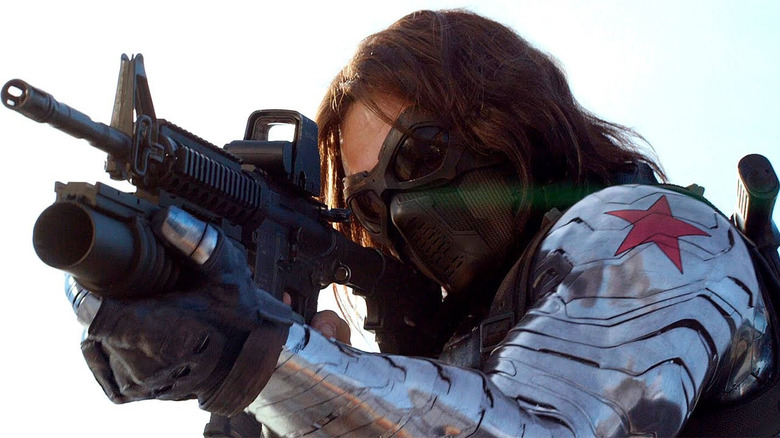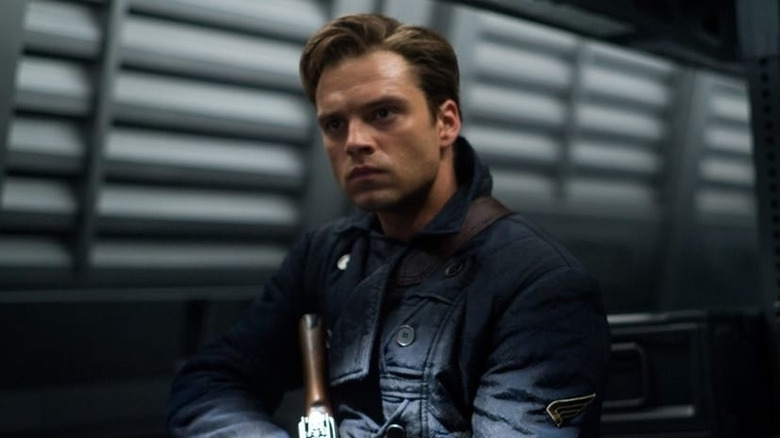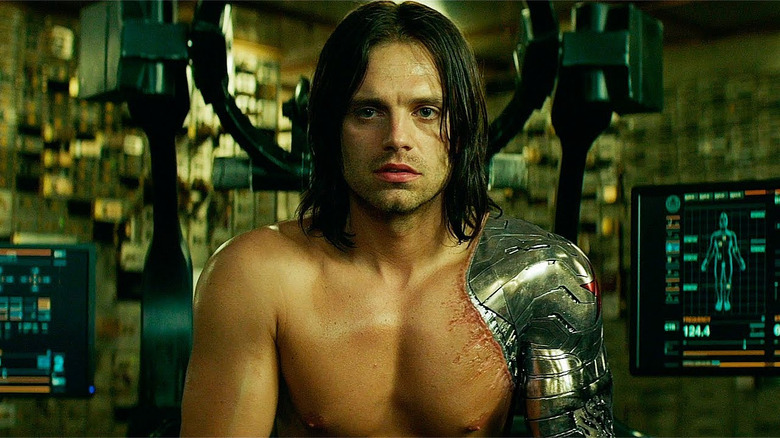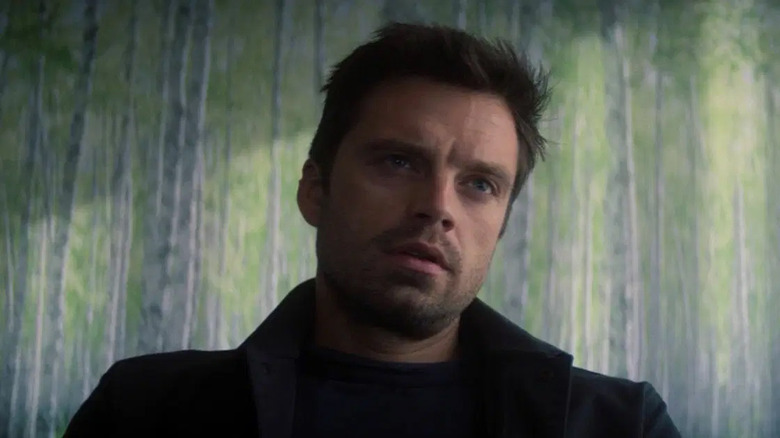Marvel Fans Picked The Best MCU Phase 2 Villain, And It's Hard To Argue Against Them
The worst villain of Phase Two of the Marvel Cinematic Universe was previously picked by fans in a poll that ended up being completely wrong. There's just no way that Yellowjacket from "Ant-Man" is a worse villain than Malekith from "Thor: The Dark World." However, when Marvel fans were asked to pick the best villain from that same era of Marvel Studios movies, they actually came up with the correct answer.
And the Survey Says...
For this Marvel poll, we had 624 participants in the United States. Even though Yellowjacket was said to be the worst Phase Two villain in the MCU in another poll, he actually doesn't land at the bottom of this one, earning 12.98% of the votes. Instead, the bottom of the poll belongs to "Iron Man 3" villain Aldrich Killian, who had just 4.17% of the votes, followed by "Captain America: The Winter Soldier" puppet-master Alexander Pierce with just under 8.81%.
Heading into double digits above Yellowjacket, we've got recurring baddie Crossbones with almost 13.78%. Then we have Nebula (16.19%) and Ultron (16.35%) coming very close to each other in the poll. But far above them, with a lead over 10% higher, is the best Phase Two villain of the MCU: Bucky Barnes, aka the Winter Soldier, with 27.72% of the votes.
Considering the competition, the Winter Soldier is far and away the best villain in this phase of the MCU, and we simply can't argue against this poll. So what makes the Winter Soldier such a great villain?
The Winter Soldier Has Strong Roots
The best villains in the Marvel Cinematic Universe are those with strongly established roots, making them significant characters instead of simply throwaway bad guys created for formulaic conflict with Marvel's superheroes. That's why Loki is easily the most revered villain in the entirety of the MCU, even more so than the mighty Thanos. The reason that the Winter Soldier works so well as a villain is because, like Loki, there's substantial character development that makes him a compelling character beyond the usual desires for universal destruction or world domination.
The Winter Soldier began as Steve Rogers' best friend, Bucky Barnes, played by Sebastian Stan and first seen in "Captain America: The First Avenger." After heading off to fight in World War II and leaving his buddy behind in New York, Bucky reunited with Steve Rogers when he wasn't a scrawny underdog anymore. He was now Captain America, and the super-soldier ended up rescuing Bucky and a squad of his fellow soldiers after they were captured by Hydra.
However, their reunion was all too short. While Captain America and the Howling Commandos were trying to capture Red Skull's right-hand man, Arnim Zola, on a speeding train, they suffered a terrible loss. In the ensuing conflict with Hydra soldiers, Bucky fell from the train to his doom in the snowy mountains. At least, that's what we were meant to believe.
The Winter Soldier's Return and Redemption
Inspired by Marvel Comics, the "Captain America" franchise brought Bucky Barnes back as a villain in "Captain America: The Winter Soldier." After being assumed dead, Bucky Barnes was recovered by Hydra and brainwashed to become a super-soldier assassin of their own, dubbed the Winter Soldier. This is one of the great twists in Marvel Comics mythology, and it's executed perfectly in "Captain America: The Winter Soldier," with a paranoid political thriller vibe that calls back to the likes of "Three Days of the Condor" and "All the President's Men."
Since this is Steve Rogers' childhood friend who has been turned into a deadly super-villain, it's not as simple as taking him out. Steve feels a responsibility to figure out why Bucky has taken this dark turn. It keeps Captain America from following SHIELD orders, because he believes that he can get Bucky to stop this madness, and adds an emotional core to the typical hero vs. villain plot. Even though this kind of twist has become typical in the age of big screen superheroes, it was perfected by Marvel Comics (and other publishers), and it's even more effective here thanks to the grounded feel of superheroes in the MCU, especially "Captain America: The Winter Soldier."
What's truly great about Bucky's eventual turn back from villain is that it's not as simple as flipping a switch and wiping away the brainwashing he endured as the Winter Soldier.
Baby Steps
Even after Captain America is able to break through the mental rewiring done by Hydra, Bucky Barnes still has an uphill battle to overcome his dark past. Not only is he unable to trust himself after unwittingly being used as a deadly tool for so long, but he's also untrustworthy in the eyes of almost everyone besides Steve Rogers. That's especially true when he's framed for the assassination of King T'Chaka of Wakanda in "Captain America: Civil War," the movie where he's also reactivated as an assassin by Baron Zemo and revealed to be the killer who coldly executed Tony Stark's parents. Yikes.
Bucky Barnes/The Winter Soldier is given such a complicated past full of seemingly irredeemable sins that it makes his evolution into a superhero a truly rewarding character arc. Bucky's struggle with redemption has continued into the Disney+ series "The Falcon and the Winter Soldier," even though it's clear that he has taken a permanent turn towards good thanks to the events of "Avengers: Infinity War" and "Avengers: Endgame."
It's all this that makes the Winter Soldier not only the best villain in Phase Two of the MCU, but one of the most well-developed characters overall. So good job, Marvel fans! You got this one right.
